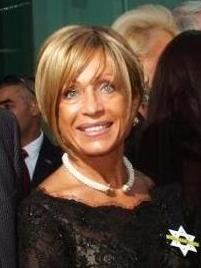“A People that dwells alone; not reckoned among the nations.”
– Numbers 23:9
The verse above is from this week’s Torah portion, Balak
(Numbers 22:2-25:9). It is named after the king of the Moabites who retains a
sorcerer by the name of Bilaam to curse Am Yisrael. Many believe that due to
certain events that occurred prior to Bilaam’s speech, the latter ended up
blessing Bnei Yisrael. Others believe that he cursed them.
At first glance, this verse which describes the relationship
between Am Yisrael and the nations of the world, seems paradoxical. The
persisting anti-semitism and ongoing isolation of Yisrael, especially in today’s
world, demonstrate that this is an accurate reflection of reality. On the other
hand, however, a bird’s eye view of world history indicates that the Jewish People have been involved in world affairs and contributed
immensely to humanity and world civilization.
When examining the interpretation of this verse by rabbis
and Torah scholars, it seems that it has evolved in an interesting way over the
ages.
Rash”i, one of the earlier commentators
(1040-1105) interprets
this verse through working with the literal translation of the Hebrew. In his
view, Bilaam is predicting the future of Bnei Yisrael. According to him, Bilaam’s
words imply, “You are distinguished (dwell apart) by your Torah traditions, and
because of them you will not suffer the fate (be reckoned) of extinction but
will survive and prosper.”
Eight hundred years later, Rabbi Naftali Zvi Yehudah Berlin (Netziv),
likewise, dwells on this very perplexing verse. In his view, this verse should
be read thus: “If a People is content to be alone, faithful to its distinctive
identity, then it will be able to dwell in peace. But if Jews, seek to be like
any other nations, the nations will not consider them worthy of respect” (Haamek
Davar to Numbers 23:9). Every other nation that went into exile, adopted
the customs of the dominant culture, was respected and accepted as equal. That,
however, was not the case with the Jews. When they sought to fuse with the
native people, they were renounced and became more isolated. In other words,
Netziv is not advocating total segregation but rather avoiding assimilation.
Both, he believes, are impossible.
Netziv’s analysis
bears great significance considering that it was made in Russia, in the latter
part of the nineteenth century. It was a period when many Jews were
assimilating, some converting to Christianity. At the same time, anti-semitism not
only did not diminish but rather erupted in the form of violence as evidenced
by the many pogroms that occured in many places in 1881.
Rabbi Samson Raphael Hirsch (1808-1888) offers a modern
angle to interpreting this verse. Utilizing the Hebrew text, he distinguishes
between a “People” (am) and “nation” (goy). The first is a sociological entity,
composed of groups or tribes of common origin that share the same code of
conduct and collective memories. The second is a political one. That, according
to Hirsch, means that Yisrael “will live in an insulated land without much
intercourse with other nations. Its People will preserve “its ‘internal’
national mission as a national social body, as a nation among the nation that
will not seek its greatness to impress others by his strength and heroism.” Am
Yisreal will live in Eretz Yisrael, will conduct limited affairs with other
nations, with no desire to compete with them, and will focus on its historical
role. (commentary to Numbers 23:9).
Rabbi Sacks (1948-2020) is also puzzled by this verse. “How
are we to understand Bilaam’s words?” he asks, when commenting on this
ambivalent verse. Unlike some thinkers, who claim that Bilaam ended up blessing
Bnei Yisrael, Rabbi Sacks claims that this verse is “not a blessing but a
curse.”
In his book Future Tense, Rabbi Sacks shares his perspective
on this verse. There, he recounts a meeting with an Yisraeli diplomat, in 2001,
shortly before the now ignominious UN’s Conference against Racism in Durban. During the conversation, the latter tried to calm
the attendees by suggesting that it had always been our Jewish fate while
quoting Bilaam’s phrase. “Hearing this verse in that context,” shares with us
Sacks, “….I suddenly saw how dangerous this phrase is and how close it runs the
risk of being a self-fulfilled prophecy. If you define yourself as the
People that dwells alone, you are likely to find yourself alone. That is
not a safe place to be.”
Rabbi Sacks reminds us that the Talmud claims, in Sanhedrin (105b),
that “all the blessings with which Bilaam blessed the Jewish People turned into
curses with the sole exception of the ‘How good are your tents, Jacob phrase,
your homes, O Yisrael’ (Numbers 24:5). He goes on to add that “the Rabbis
suggested that Bilaam was deliberately ambiguous in what he said, so that his
words could be understood as blessings but also had another and darker meaning.”
Whether we believe that Bilaam cursed or blessed Am Yisrael,
one fact remains clear. The verse shows the distinct character of the Jewish
People. Despite its isolation, the Jewish People have remained defiant, determined
and continued to choose life. Despite all the hardships and the suffering, we
have endured by the greatest empires and other powers, we have outlasted them
all!
Am Yisrael Chai
Shabbat Shalom


